BELLE Interview: Director Hosoda Mamoru Provides Hope For The Future
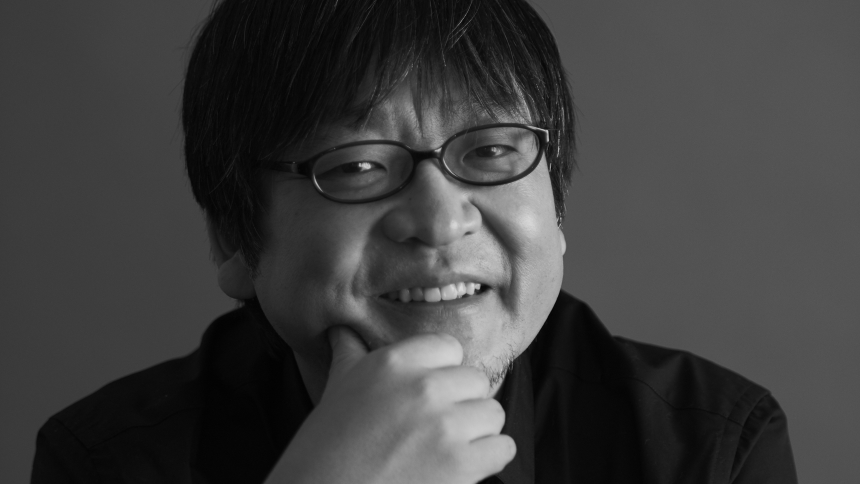
Belle has had a very successful festival run and will première in cinemas in the US and Canada this January. The film is about a shy schoolgirl who anonymously becomes an internet-sensation as the singer "Belle", only to discover that her online fame will provide repercussions and opportunities in the real world. Guillem Rosset reviewed it at Sitges and said that Belle is a great film that probably won't disappoint Hosoda Mamoru's fans (and animation fans in general).
I'm in awe of this director, so when the Vancouver-based Spark Animation Festival allowed ScreenAnarchy to interview him through a Zoom session for the festival's benefit, I jumped and took our anime expert Peter van der Lugt with me. Mister Hosoda was in Los Angeles when we talked with him for an hour, touring the United States as far as Corona would allow last October. With him was interpreter Michael McNamara, while we called in from the Netherlands.
ScreenAnarchy: Let us start with congratulating you with the positive reception of Belle, especially the ovation in Cannes.
Hosoda Mamoru: Thank you very much.
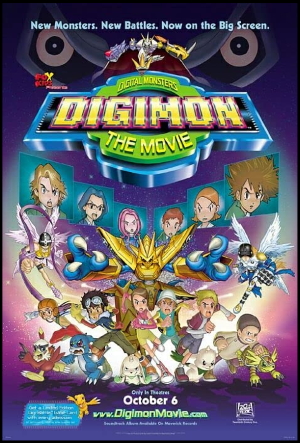 The environment that Belle takes place in is very similar to the one in your earlier film Summer Wars. What made you return to the world of online social networks?
The environment that Belle takes place in is very similar to the one in your earlier film Summer Wars. What made you return to the world of online social networks?
This is actually the third movie that I have directed that has to do with the themes of the Internet, the first being Digimon Adventure in 2000 and the second being Summer Wars in 2009, and now Belle in 2021. Internet history for me is about 25 years old, when it became widely adopted, and in the beginning it felt like a hopeful space, where the younger generation found change and moved things forward for the better. But as the Internet evolved during the past twenty years, I think it grew a lot closer to reality than we all thought it was going to be. A reality that has a lot of toxicity, of fake news and disinformation. With all this, I wondered how the younger generation would be able to transform the world for the better, and I think I wanted to encourage them through this movie.
You begin Summer Wars and Belle in a very similar way, by first showing a lengthy introduction of the virtual worlds. "Oz" for Summer Wars, "U" for Belle.
That was intentional. Though in Summer Wars we used an older style flip-phone to enter the world, and that has now transitioned into a smart-phone. They're slightly different tools and slightly different worlds, so I consider the new world in Belle to be an update from the one you see in Summer Wars.
What we like about both films is that they show old networks like family and friends, and these new social networks, but they do not pick one over the other. One is not shown as better or worse than the other. Was there something you wanted to tell in Belle that you hadn't in Summer Wars?
There are other creators who want to show the duality between two contrasting images, and I see that the Internet is often portrayed as a dystopian background which is stripping us of our humanity, and humans should get back to nature. It always seems to paint one in a positive light and the other in a negative light, but I think there's value on both sides of the equation. They need each other to generate value, so I wanted to make sure that in Digimon and Summer Wars the internet wasn't solely painted in a negative light. Look at history in different movies, like Charlie Chaplin in Modern Times, there's this interesting shift between what technology is doing and what the effect is on us, humanity, but it's not like you watch Modern Times and think "I'm going to stop using locomotives" or "I will leave modern society". If you apply that to present time, I'm not going to throw my kid's smartphone away, because you need both sides and innovations will happen. In this new world which is going to happen inevitably, I want to help suggest a new, more hopeful way, in which you can balance it.
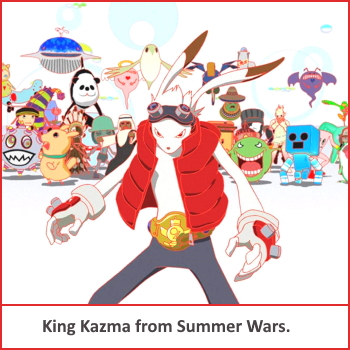 We have to ask: if the world in Belle is an update of Oz in Summer Wars, is King Kazma in it? We were looking for him but couldn't find him!
We have to ask: if the world in Belle is an update of Oz in Summer Wars, is King Kazma in it? We were looking for him but couldn't find him!
(laughs) I did see Belle's "U" as an update to "Oz", which we designed back in 2009. I remember reading an article about Facebook back then which said it was approaching one billion users, so I said: "Let Oz have one billion users" and that was fine, but nowadays Facebook has more than two billion users, and I thought "Aw man, my fiction has been surpassed by reality", so I wanted five billion users for "U" to stay ahead of reality a bit longer. Therefore it Is a good question, where IS King Kazma's avatar. Is he still there? Well... in both Summer Wars and Belle, there are so many avatars in the crowded scenes, that we had to use an avatar generator which automatically creates many of them to populate the screen for you. If that generator hits the right specifications, you might spot King Kazma somewhere in the background! (we all laugh)
Belle was made using some very interesting collaborations, like Tomm Moore and studio Cartoon Saloon. Those scenes really stand out. What brought this about?
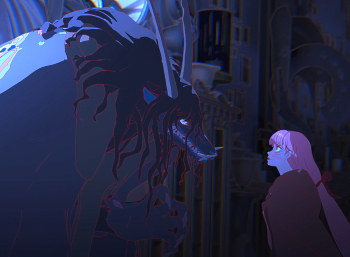 Belle is definitely full of all kinds of different collaborations. For starters we had the legendary Jin Kim, Disney's character designer, he's the one who designed Belle inside the world of "U", and indeed Cartoon Saloon, Tomm Moore, who helped out with some scenes, we'll see if you spotted the right ones... (we all laugh) As for how that came about, they had just finished making Wolfwalkers and they were on a promotional tour in Japan. And I thought their movie was absolutely amazing so I told Japanese crowds to go watch this movie, and when we had a conversation I asked Tomm "Hey, what's your next movie going to be, have you already decided?" and he said: "Well, we've just finished a movie and we're going on a vacation." And I thought "Whoa, you cannot go anywhere on vacation, we're in the middle of COVID!" So I said "I can give you some work, let's do this project together..." and that's how our collaboration came to be. But the world of "U" is such a global space, we decided to use the internet to do our own search for different talent and designers. I want to call out Eric Wong, an architect based in London who helped develop the look of the "U" platform. I saw his portfolio online and thought "Wow". I wanted to work with this guy, he does amazing stuff even if he has no movie experience. Like "U" in the film, the internet is such a global space of hidden creative talent, which we wanted to use.
Belle is definitely full of all kinds of different collaborations. For starters we had the legendary Jin Kim, Disney's character designer, he's the one who designed Belle inside the world of "U", and indeed Cartoon Saloon, Tomm Moore, who helped out with some scenes, we'll see if you spotted the right ones... (we all laugh) As for how that came about, they had just finished making Wolfwalkers and they were on a promotional tour in Japan. And I thought their movie was absolutely amazing so I told Japanese crowds to go watch this movie, and when we had a conversation I asked Tomm "Hey, what's your next movie going to be, have you already decided?" and he said: "Well, we've just finished a movie and we're going on a vacation." And I thought "Whoa, you cannot go anywhere on vacation, we're in the middle of COVID!" So I said "I can give you some work, let's do this project together..." and that's how our collaboration came to be. But the world of "U" is such a global space, we decided to use the internet to do our own search for different talent and designers. I want to call out Eric Wong, an architect based in London who helped develop the look of the "U" platform. I saw his portfolio online and thought "Wow". I wanted to work with this guy, he does amazing stuff even if he has no movie experience. Like "U" in the film, the internet is such a global space of hidden creative talent, which we wanted to use.
Have there been advancements in filmmaking in the past ten years which made Belle easier to make than Summer Wars?
I think the biggest difference was in the characters, and how we were able to use CG in this imaginary world. To make the CG characters act and perform on the screen, we used the Toon-rendering technique, to make it appear as if they were hand-drawn. In many films CG characters look like dolls, a bit awkward in many ways, so an important part of what we wanted to do in Belle is to make the acting seem very natural. Because "U" is this cyber-like world, I think it was a natural choice to fully create that world in CG. And this huge conceptual change in different methods, of visual expression...I think we're one of the first movies to almost exclusively use hand-drawn 2D for reality and fully CG for the digital world. Whereas in Summer Wars and Digimon we still did a lot of the cyber world using the hand-drawn methods.
Belle is about a singer and music plays a very important part in the film. For your previous three films you used Masakatsu Tagaki, and we thought you had maybe found your musical voice with him. But In Belle you used several different composers.
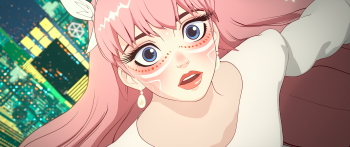 What I really admire and love about Masakatsu Tagaki's work is his originality. Many movies have that one generic movie soundtrack, the same cinematic composition, but his style is very fresh and contains sounds which are unheard of. But the music in Belle required singing, and lyrics, and while he is an excellent composer he might not necessarily make the most of the singing component. With the background of "U" we wanted a more global musical approach, we wondered what would be a universal sound that might become a hit in "U". So we thought "let's take a look at the US Billboard Top-10", but that wasn't what we wanted as our global sound either, something that can transcend borders and language. In the end we used four composers, three from Japan and one from Sweden. I think it worked out really well, with our lead actress Kaho Nakamura singing all her songs.
What I really admire and love about Masakatsu Tagaki's work is his originality. Many movies have that one generic movie soundtrack, the same cinematic composition, but his style is very fresh and contains sounds which are unheard of. But the music in Belle required singing, and lyrics, and while he is an excellent composer he might not necessarily make the most of the singing component. With the background of "U" we wanted a more global musical approach, we wondered what would be a universal sound that might become a hit in "U". So we thought "let's take a look at the US Billboard Top-10", but that wasn't what we wanted as our global sound either, something that can transcend borders and language. In the end we used four composers, three from Japan and one from Sweden. I think it worked out really well, with our lead actress Kaho Nakamura singing all her songs.
We noticed your name was in the credits for some of the lyrics as well.
At the beginning the songs were approached a little bit more like in a musical, with the dialogue, character interactions and story components woven into the music and the lyrics. But ultimately I decided to go more for a lyrical experience, working together with Iwasaki Taisei and Kaho Nakamura, and that's why my name is mentioned there.
In earlier interviews you have stated that for each project, you take into account the intended audience, like teenage girls or parents. Is there an audience you haven't focused on yet but would like to?
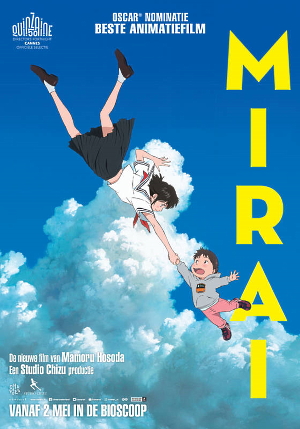 The demographic conversation is for me not necessarily coming from a marketing perspective. I don't think like "this is the intended target, this is where we should go after". I generally like more to look at younger generations, or kids, but that doesn't mean I'm necessarily making movies especially targeting kids. I like to think that my movies are aimed at people who are going to be living in the next generation, in some form or way of human societies, so naturally the protagonist tends to be younger. But that's more because they will be living in the future, and show where we will be going as a human society. And I'm sure there's going to be a lot of doubt, moving forward, and a lot of anxiety, and how are we going to guide that? I'm sure that if you're a major studio you need to find a way to keep the lights on, and you need to reverse engineer what audience you will be aiming for, what target to hit to keep the studio afloat. But we're a smaller independent studio, and I like to create work that will speak to someone instead of aiming for a certain demographic.
The demographic conversation is for me not necessarily coming from a marketing perspective. I don't think like "this is the intended target, this is where we should go after". I generally like more to look at younger generations, or kids, but that doesn't mean I'm necessarily making movies especially targeting kids. I like to think that my movies are aimed at people who are going to be living in the next generation, in some form or way of human societies, so naturally the protagonist tends to be younger. But that's more because they will be living in the future, and show where we will be going as a human society. And I'm sure there's going to be a lot of doubt, moving forward, and a lot of anxiety, and how are we going to guide that? I'm sure that if you're a major studio you need to find a way to keep the lights on, and you need to reverse engineer what audience you will be aiming for, what target to hit to keep the studio afloat. But we're a smaller independent studio, and I like to create work that will speak to someone instead of aiming for a certain demographic.
Your last six films have been very successful. Does that mean you now have total freedom to decide what you want to do next?
First, what does it mean to be successful? What do you measure that against? It's true that my films have been growing in scope in recent years, but I look at where I want to be in the distant future, if I still like to be on that journey. Success can be being able to have your movie seen by a lot of people, but another measure for success is one person seeing this movie and it really means something to him for the rest of his life. When I make movies there is certainly always the commercial aspect, which I don't like to think about. Some projects are made with that in mind but I don't like to take that approach. When I look at IPs you really see some studios taking the IP-business to the next level, with movies, TV, mixed media, other areas, but I really still see ourselves as a movie-making studio. And ultimately what matters to me is to create a fun experience for the audience and telling them something.
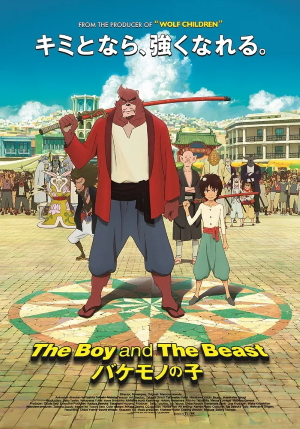 But if some billionaire would offer you 300 million dollars and say, "I love your work, here, create whatever you want!", what would you make?
But if some billionaire would offer you 300 million dollars and say, "I love your work, here, create whatever you want!", what would you make?
I may not necessarily make a movie for 300 million dollars. I'll make a movie for 3 million and keep the rest! (we all laugh)
Like with the previous question, people think that with more financing you'd get a more successful film, but in many ways I think it is the restrictions which ultimately make for a better movie. Not just finance, but for example making a movie in Japan, which is a type of restriction in itself. If you'd make that movie in Hollywood, would it automatically be a good movie? Not necessarily. It's really more about how you manage to arrive at the end of a project which makes it a good movie, and I believe there are many ways to do that. And again, it's easy to measure success as commercial success, as it's tangible, a number, but as we transition into a kind of global economy, a global experience, I think that money may not always be the ultimate measurement. Maybe geography is, the Netherlands, Japan, Vancouver... wherever it is, there's something to be gained. You could even look at a big studio and argue that they lose something, as their context can be their own type of restriction, the necessity to earn back the huge amount of money they spent on their projects, having to distribute worldwide. People think the access to money is freeing, but it might be a big restriction too. Is that a good thing, is that a bad thing? It's just different.
Speaking in restrictions, what stage of a film's development is the most difficult one in your opinion?
All stages are hard in some regard. But perhaps the early concepting, the early development of a project is exceptionally challenging. What am I going to make? What's the idea going to be? What is the social meaning that this movie is going to carry? Because we're going to invest the next three years of our studio's time and many other people's time, so is it worth it telling this story and bring this movie out into the world? And I usually start with two or three pages of plot, to try and determine if this is going to be good in some way. And you know, it could be very short, with short sentences, but when I see it, there is a moment when I get excited and if I find something exciting, that's usually the start of my movie. And then I can move on to the next stage and develop this further.
As a final question, not many people in Japan own a dog, yet they feature prominently in most of your films. In Belle there is even a dog missing a paw. Are you a dog person?
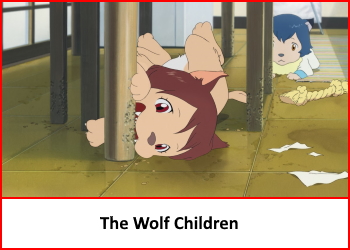 In terms of dogs versus cats, I would definitely say I'm a dog person. Back in the Digimon days, there was a cat in the movie named Miko. So at that time I was a cat person. But around Summer Wars, I thought cats were absolutely adorable, the cutest animals on Earth, and I was often wondering: "Do they even realize how cute they are?" and by the way they probably have... (we laugh) But then I got the opportunity to go to my wife's family's original house, and they had a cat, a stray, who was not friendly at all. Except for my wife's mother, the cat would extend his claws and attack anyone who got near, so I stopped being a cat person and from that moment on a lot of dogs started appearing in my films. (we laugh) And of course in The Wolf Children you have the kids being, well... wolves.
In terms of dogs versus cats, I would definitely say I'm a dog person. Back in the Digimon days, there was a cat in the movie named Miko. So at that time I was a cat person. But around Summer Wars, I thought cats were absolutely adorable, the cutest animals on Earth, and I was often wondering: "Do they even realize how cute they are?" and by the way they probably have... (we laugh) But then I got the opportunity to go to my wife's family's original house, and they had a cat, a stray, who was not friendly at all. Except for my wife's mother, the cat would extend his claws and attack anyone who got near, so I stopped being a cat person and from that moment on a lot of dogs started appearing in my films. (we laugh) And of course in The Wolf Children you have the kids being, well... wolves.
For Belle, you were right, the dog is missing a paw and that is because it is based on a dog which actually existed in real life. His name was Kuga and he came from a shelter. Despite having lost one of his legs he was really adorable and really loved people. His handicap never got in his way too much and he was such an adorable thing. It was an acquaintance's dog but I wanted him in the movie.
And that concluded the interview. Special thanks go to the Spark Animation Festival and GKids for facilitating this interview, and to interpreter Michael McNamara (without whom it would have been a very short interview indeed).
Belle will première in cinemas in Canada and the United States this week.
All images from Belle are © 2021 STUDIO CHIZU.
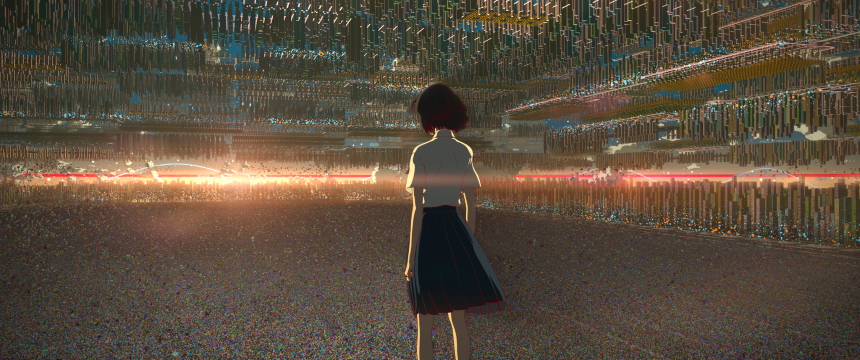
Peter van der Lugt
contributed to this story.

Do you feel this content is inappropriate or infringes upon your rights? Click here to report it, or see our DMCA policy.






